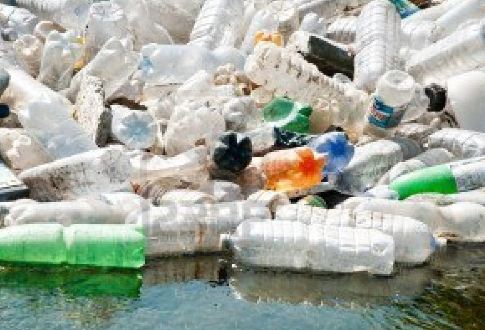DAINIK NATION BUREAU
Life without plastic has become unimaginable now. As plastic being used for various purposes in day to day lives from water bottles to carry bags to hospital items. Our day start with tooth brush which is made up of plastic. But, there are plenty of things one can do in everyday life to reduce its use and the resulting negative impacts for which plastic waste is responsible.
In a recent study published in the journal Environmental Science and Technology, a team of scientists have pointed out that ten of the world’s rivers, including the Ganga and the Brahmaputra, together account for about 90 per cent of plastic waste deposited by rivers into the sea. This shows the grim reality that plastic waste is gathering along the rivers’ catchment zones, killing the aquatic life and disturbing the whole ecosystem. Plastic pollution is a major environmental problem causing damage to the humans, land and water animals and their habitats. The waste that accumulates in landfills causes drastic effect on the food chain.
The Ganga is no exception being affected by this global plastic menace. Heaps of garbage with thin coloured plastic bags and plastic packaging clinging to iron barricades on Ganga Ghats and littering residential areas in major parts of the city have become a matter of concern to the residents and the administrators alike.
It is estimated that 65 per cent of public water needs are met by rivers. Flood, drought and rivers turning seasonal are increasingly leading to crop failure across the country. These are alarming aspects considering which it is high time to conserve sources of water and stop littering.
It is a harsh reality that the bulk of garbage in water bodies originates on land— carried to rivers from the streets during heavy rain through storms, drains and sewer overflows. As per the National Green Tribunal (NGT) directions, a complete ban has been imposed on the use of plastic and polythene bags of any kind from Gaumukh to Haridwar along the Ganga river. There is a penal provision of Rs 5,000 per day on erring hotels, dharamshalas and ashrams discharging waste into the river. Though officials are silent over the use of Ganga Jali (the plastic can used to carry holy water), regular raids are being made on violators of polythene and plastic ban.
Talking to media, the district magistrate of Haridwar Deepak Rawat said, “Our team keeps raiding in various parts of the city to check the use of polythene and plastic items. Till now our team has penalised many traders and vendors who are violating the NGT directions. We have caught wholesalers and retailers and lot of awareness drives have been carried out in schools and colleges but time has come now that consumers also get the pinch of it.”
He also said that now he will penalize the consumer whosoever found using thin polythene bags. The vegetable sellers are being forced by the consumers to give goods in polythene bags. My personal observation is that the manufacturers of polythene are not in Uttarakhand but they use small boys to distribute these to the local vendors. Now I will book such boys under child labour Act.
As per an estimate by the Central Pollution Control Board, 60 cities across India together generate about 1.28 million tonnes of plastic polythene waste each year which is enough to pack a tower of the size of the Qutub Minar every two days. Sitting by the Ganga river bank while enjoying its cool breeze, one cannot ignore the reality of the waste floating around in that water—and a lot of most of it is non- biodegradable plastic which lasts in the environment for far longer than other forms of trash.
The district administration has urged traders, local priests, industrialists and religious bodies to forget their personal and commercial issues and work in tandem with the NGT orders, administration, civic body, Ganga Pollution Control Board and other nodal agencies to ensure that the sanctity of the river is restored by reducing plastic waste.
 Dainik Nation News Portal
Dainik Nation News Portal




